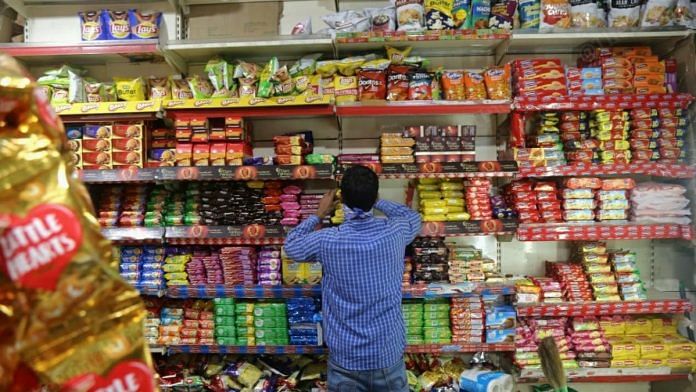Some time in the middle of March, just a few days before the Janata curfew, Mahita Nagaraj’s friends from overseas asked her to help them keep a check on their parents in India. This was around when India was starting to practice social distancing.
Nagaraj, a freelance digital marketer in Bengaluru, soon realised that older people, especially those with no assistance, would find it difficult to do everyday tasks as social distancing rules became more stringent. She decided to post on Facebook to let friends know she was willing to help them out and check on their parents should the need arise.
Soon, her Facebook notifications were blowing up with hundreds of people writing in to seek help. Simultaneously, many people from other cities expressed their willingness to volunteer and help people out.
This led Nagaraj to start an initiative called Caremongers India on Facebook — within a day of posting that message. Today, the 39,000-strong community of volunteers spans across the country. “I can say with a certain degree of confidence that we have volunteers in every state and Union Territory of the country right now,” Nagaraj tells ThePrint.
The group’s impact soon went international with people writing in for help from Canada, UK, USA, Ghana, Singapore and New Zealand, and receiving it.
Also read: Delhi government launches exercise to open liquor shops everywhere but containment zones
Collecting help
Volunteers do a mix of things, including administrative work like maintaining a database, procurement, logistics and moderating the various groups.
While getting medicines for older people or people with comorbidities, which might not be available in their neighbourhood, is what most people need help with, people also write in looking for pet care, house helpers, caretakers, maternity clothes, spare gas cylinders or just checking on people’s elderly relatives.
Since its inception on 17 March, Caremongers has successfully helped more than 7,500 people in distress. Though the Facebook group, which is where it all started, is extremely active, that’s just the tip of the iceberg. “It takes an army to run this, it’s not possible just by Facebook moderation,” says Nagaraj.
Keeping in mind that the older generation might not be very tech savvy, Nagaraj set up a helpline number (95911 68886) where people call and seek the assistance they need. Nagaraj takes these calls herself and then informs the relevant people, who then get in touch with the caller and do the needful.
“Sometimes, in cases that are too urgent or need expert help, we redirect them to contact the authorities, or we do it for them,” she adds.
There are dedicated city and state WhatsApp groups where distress calls and messages are shared. The volunteer in the area then takes it forward.
At its peak, over 900-1,000 people had called daily and an additional 1,800-2,000 people wrote in asking for help. This has since shrunk to 150-200 calls and 800-900 messages on a daily basis.
Also read: Modi govt extends lockdown for two more weeks, but this time with some relaxations
A humanitarian effort, with a cost
For Lakshmi Chandrashekharan, a soft-skills trainer from Hyderabad who needed help getting ayurvedic medicines for her mother, the group came as a blessing in these exceptional times.
“Not only do these initiatives help us restore our faith in humanity, but they also motivate us to contribute in whatever little way we can and give back to the society,” she says.
On the other side, volunteers like Pamul Kumar Joshi from Kolkata are more than happy to help. For him, the fear of contracting a deadly disease pales in comparison to his fear of not being able to help those who might die without assistance.
But his experience hasn’t been spotless. Some fake calls are made by older people living with young sons and daughters too. “They took our help because they didn’t want their children to step out,” Joshi says, but he reiterates that such incidents happen only once or twice out of 100 times.
“At the end of the day, it’s all about precautions,” he says. He always goes out wearing surgical gloves and an N-95 mask, and carrying sanitiser in his pocket. He never enters the building societies of the people he’s making a delivery for or comes in direct contact with them. “I step out to buy my own essentials as well, so if I do it for someone else, how is it any different?” he asks.
But being a good samaritan amid the pandemic comes with its own set of sacrifices. Ever since she started this initiative, Nagaraj, who stays with her mother and a 12-year-old son, hasn’t been home, because she didn’t want to potentially expose them to any infection. She’s currently living with a friend and fellow Caremonger, diligently answering calls of people in need of help.
Also read: Tracking Covid in Indore, Bhopal — story of delayed govt action, attempts at covering it up




OMG. SUCH CRINGE MUCH WOW.